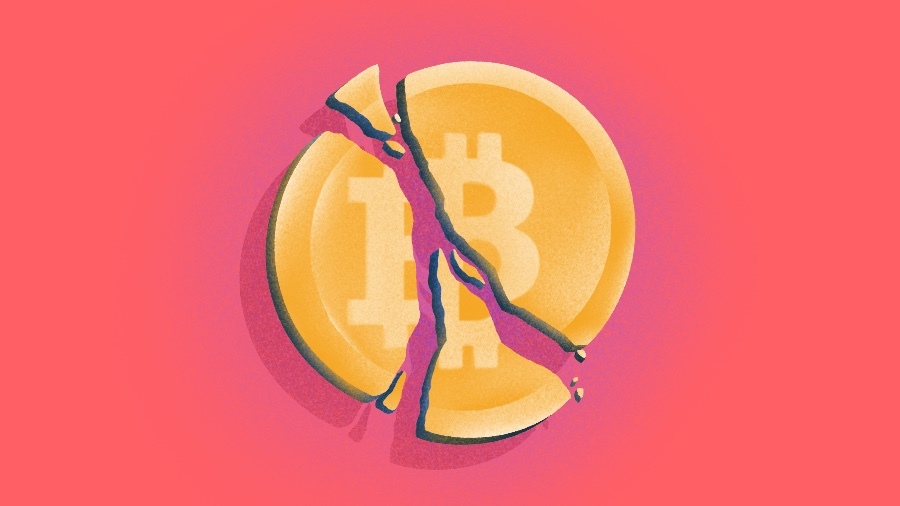The crypto winter is not descending upon just holders of digital currency—but also those startups looking for funding.
Investment in VC-backed crypto companies slowed during the first half of the year, from a record $12.5 billion invested during last year’s first half to about $9.3 billion invested through the first six months of this year, according to Crunchbase data.
Search less. Close more.
Grow your revenue with all-in-one prospecting solutions powered by the leader in private-company data.
Deal flow, on the other hand, increased as 534 deals were announced in H1 this year, compared to only 456 in H1 last year.
However, some perspective and a slightly closer look does show small positives in the numbers—especially considering the negative headlines surrounding crypto in the first six months of the year.
First, it should come as no surprise that more money went into crypto in the past year as compared to this one, since venture is down practically everywhere. The 2022 venture capital market has thus far proven to differ greatly from last year which was record- breaking in almost every way.
Secondly, the Q2 numbers held strong. The second quarter saw more than $4.2 billion come to venture-backed crypto startups, about $1 billion less than the previous quarter and well off the record high of $6.1 billion hit in the fourth quarter of last year. However, it also holds pretty steady with the slightly less than $4.2 billion raised in the same quarter last year.
One of the reasons the first quarter’s numbers were higher was that it saw more large rounds. Six rounds of $400 million or more were announced in the quarter, whereas the second quarter saw only one such round. This wasBoston-based internet finance firm Circle Internet Financial closing a $400 million private equity round from BlackRock, Fidelity Management and Research, Marshall Wace and Fin Capital.
Other big rounds in the second quarter included:
- Germany-based Trade Republic, which lets people buy and sell different assets, closed a Series C extension worth approximately $250 million in June.
- San Francisco-based crypto exchange Binance US closed a $200 million seed round in April.
- Liechtenstein-based digital asset exchange platform Unizen raised a $200 million venture round in June.
Bad news
Those rounds are especially impressive considering how brutal this year has been to the crypto market. Values for the two largest cryptocurrencies—Bitcoin and Ether—are down more than 70% from November highs. And the industry saw one of its stablecoins completely collapse. Additionally, large lending platforms Babel Finance and Celsius Network suspended withdrawals and transfers due to market uncertainty and liquidity issues—leading Celsius to file for bankruptcy this week.
Then to top off the quarter, notable crypto hedge fund Three Arrows Capital, also known as 3AC,collapsed after the downturn in digital currencies left it unable to meet obligations. The firm, which managed about $10 billion in assets as recently as March, filed for Chapter 15 bankruptcy protection on July 1. Now its co-founders appear to be on the run from creditors.
That news along with the shifting economy has changed the investing environment in crypto.
“Yes, we’ve seen a pullback in crypto/blockchain investments, mirroring the broader tech markets,” said Yash Patel, general partner at Telstra Ventures, whose investments include Bahamas-based crypto exchange FTX Exchange which is valued at $32 billion.
Much of the recent instability from centralized lending platforms in crypto going under and worries of more systemic issues has created a sense of fear that has spread from consumers and price speculators to venture investors in the space, Patel said.
Consumer-oriented plays such as NFTs and blockchain-based games have particularly taken a hit as financial speculators have been scared out of the market. As a result,prices of these NFTs and tokens have plummeted in value, added Patel.
“Ultimately, I view that as a good thing long term, as it cleanses out the noise and focuses more on the utility/real entertainment function that these tokens (and) NFTs unlock,” Patel said. “Similar to the Web2 world, games and digital art are meant to be fun, not burdensome financial instruments.”
We’ve been here before
Others who look to invest in the industry reiterate crypto downturns are nothing new. However, people’s attitudes about such declines, and the industry in general, seem to be changing.
“We’ve seen this story before,” said Jordan Nof, a co-founder and managing partner at Tusk Venture Partners who invests in crypto. “If you believe this is a fad, you probably are leaving the market but we are not hearing that (people think that) anymore.”
Large VC firms clearly don’t see it as a fad. In May, Andreessen Horowitz said it raised $4.5 billion for its fourth cryptocurrency fund—bringing its total funds raised for crypto investing to $7.6 billion. And just this week, Lightspeed Venture Partners said, as part of its announcement on closing more than $7 billion in new funding, it is creating Lightspeed Faction—an independent team to invest in blockchain infrastructure.
Nof said he believes the dramatic and much-talked about fall of some stablecoins are one of the main driving factors in crypto’s decline this year. But more regulation and infrastructure around digital currency should help alleviate fears and make consumers feel less under siege.
“Crypto will continue to play a role in the financial markets,” he added.
While Nof is not surprised about the slight drop in investment to the crypto sector, he is still seeing deals at some high values. Despite the drop in cryptocurrencies’ value, he will not be pulling back in the market.
“The price of Bitcoin does not affect our aperture to invites,” he added.
Further reading:
- Mergers & Money: As Summer Approaches, Emerging Crypto Winter Gets Darker
- Crypto Market Tumult Drops Bitcoin To 18-Month Low
- Crypto Bear Market Here A While
- Mergers & Money: The Instability Of Stablecoins
Illustration: Dom Guzman

Stay up to date with recent funding rounds, acquisitions, and more with the Crunchbase Daily.




![Illustration of agentive AI brain - Latin America - Quarterly. [Dom Guzman]](https://news.crunchbase.com/wp-content/uploads/Agentive_AI_lat-america-470x352.jpg)
![Illustration of a man sitting on a huge pile o' money. [Dom Guzman]](https://news.crunchbase.com/wp-content/uploads/Giant_Funding-470x352.jpg)
![Illustration of agentive AI brain - Asia - Quarterly. [Dom Guzman]](https://news.crunchbase.com/wp-content/uploads/Agentive_AI_asia-470x352.jpg)
![Illustration of a guy watering plants with a blocked hose - Global [Dom Guzman]](https://news.crunchbase.com/wp-content/uploads/quarterly-global-3-300x168.jpg)
67.1K Followers